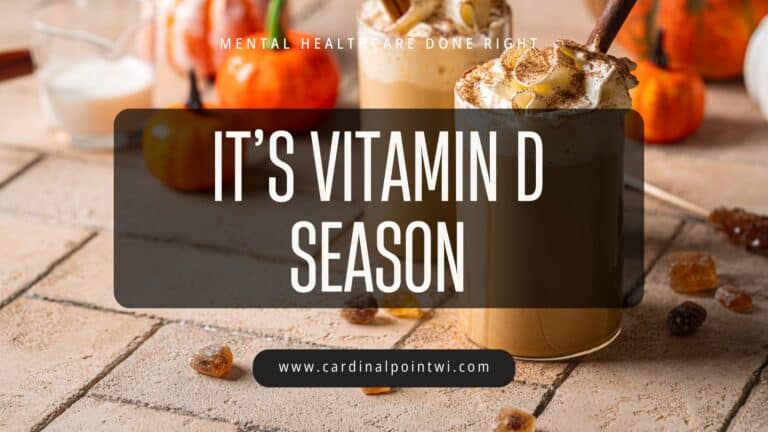Could Low Vitamin D Be Causing Your Fall Fatigue, Stress, or Low Mood?
As the days get shorter and sunlight becomes scarce, many people notice changes in mood, energy, and stress levels. Feeling more tired or irritable this fall might be more than just seasonal blues—low vitamin D could be to blame.
Why Vitamin D is Critical for Mood and Stress
Vitamin D, also called the “sunshine vitamin,” plays a key role in:
Mood regulation and stress reduction: Low vitamin D is linked to depression, anxiety, and increased stress.
Energy and focus: Deficiency can lead to fatigue, brain fog, and difficulty concentrating.
Immune support: Protects against infections, especially important during fall and winter months.
Even mild deficiencies can affect mental clarity, mood, and overall performance. That afternoon slump or increased irritability could be a sign your vitamin D levels are too low.
Fall and Winter Risk: Why Low Vitamin D Happens
During summer, your skin produces vitamin D from sunlight exposure. As fall arrives, shorter days and weaker sunlight mean your body makes less vitamin D naturally. For many, diet alone isn’t enough to maintain optimal levels.
Optimal Vitamin D Levels for Mood and Energy
Research suggests vitamin D levels between 75–100 nmol/L (30–40 ng/mL) support mental health, stress management, and overall energy. Levels below this range may contribute to fatigue, low mood, or anxiety.
Supplementation: Vitamin D3 + K2 for Maximum Benefit
If you’re not getting enough sun exposure:
Vitamin D3 is the most effective form for raising blood levels.
Vitamin K2 supports proper calcium absorption, bone health, and cardiovascular function.
D3 + K2 together ensures you get maximum benefit and supports long-term health.
Tips to Maintain Healthy Vitamin D Levels
Get tested: A simple blood test shows your current vitamin D status.
Supplement smartly: Work with your healthcare provider to find the right D3 + K2 dose.
Safe sun exposure: Even short walks outdoors can help boost vitamin D.
Dietary sources: Fatty fish, fortified dairy or plant milks, and egg yolks contribute to vitamin D intake.
Bottom Line
Instead of reaching for another pumpkin spice latte this fall, consider checking your vitamin D levels. Low mood, stress, or fatigue may be as simple as a vitamin D deficiency. With the right levels, you can support your mental clarity, mood, and energy, protect your bones, and strengthen your immune system—all while enjoying the fall season.
Medically reviewed by Dr Teralyn Sell, PhD, Brain Health and Mental Health Expert






